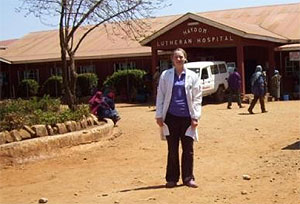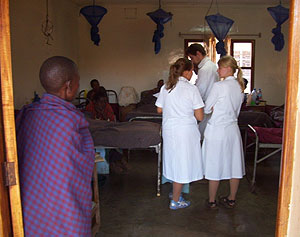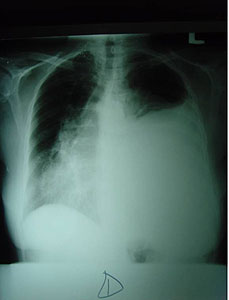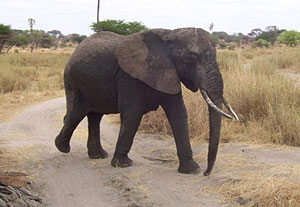
Haydom is a rural village in the North of Tanzania, and rests at approximately 1800m above sea level. The village would probably not exist were it not for the hospital as the only work to be found in the village is either as hospital staff or in providing services for the hospital. The hospital serves approximately 450,000 people as a first referral hospital and around 2 million as tertiary referral. Many of these patients have to travel for several days to reach the hospital.
English is spoken by all clinical staff. The main language in Tanzania is Swahili and is widely spoken. I would recommend learning some basics before travelling although there are plenty of opportunities to learn when you are there! However, not all of the patients speak Swahili but prefer local tribal languages, in which case nurses, relatives or other patients translate.

The hospital has approximately 400 beds and usually at least that many patients. The main in-patient wards are two medical and two surgical wards, TB, maternity and paediatric wards and ICU. ICU is a misleading term as this means oxygen and suction are available! The main problems faced by the hospital include malaria, TB, pneumonia, typhoid, meningitis and trauma. I was also a little surprised by the number of patients with problems such as cardiac failure and by the number of patients claiming to be aged 100!
The doctors in Haydom are approximately half Tanzanian and half Western doctors. None of the permanent staff are experts in any one area but are good at many things. There are occasionally visiting specialists who come to see difficult cases and to do some teaching.
Main Activities

The working day at Haydom begins at 7.30am with the doctors' meeting where all new admissions and deaths are discussed. All the staff then congregate for morning prayers in the chapel onsite. There is a daily radiology meeting where all the previous day's x-rays are presented and further management discussed. This was an excellent learning opportunity as I was also ordering x-rays on the wards and therefore able to review them myself and discuss the management plan with the doctors.
I was both attending ward rounds with doctors and then conducting them myself after a couple of weeks training. I would pass the round accompanied by a nurse and would record my history, examination and tentative management plan and would later present each case to a doctor. The doctor then made a few suggestions and I followed up any jobs arising from our discussion. I was also able to scrub in theatre, suture under supervision and help deliver babies.
Extra-Curricular Opportunities
Haydom is set in a beautiful yet remote location and there are many opportunities for walking and exploring the area. There are always students and visitors staying and there are regular social activities organised throughout the week. Some of the male students while I was there were able to arrange a hunting trip with the local tribe of hunter-gatherers.
Weekend trips away are possible, for example, a trip to climb Mount Hanang and camp at the top. I would also thoroughly recommend a safari in some of the nearby National Parks. We spent the last couple of days before flying home in Dar es Salaam (from here Zanzibar is easily accessible). I took a short boat ride and visited the beautiful Bongoyo island.
Cultural Diversity

I found the local people willing to share their culture and keen to hear about England. There is a cultural centre in Haydom and one of the locals showed us around examples of the typical houses from each of the main tribes in the region and told us about aspects of their lives and how the tribes interact with each other. This was useful as it gave us more of an understanding of the backgrounds of our patients, as well as being very interesting!
I managed to pick up some Swahili during my stay. However, the Swahili term used to ask patients to take a deep breath sounds very similar to one of the tribal words for, 'Name.' On a few occasions I proudly asked patients to breathe deeply, not realising they did not speak Swahili and instead they responded by telling me their name!
Our food was provided by the guesthouse and was sometimes their version of European food but often included local dishes. The cooks were delighted when we put in a special request for ugali, a typical Tanzanian food. Several locals took great pleasure in teaching us the traditional way to eat ugali with your hands.
I would thoroughly recommend an elective in Haydom to anyone interested in working in a developing country. I won't say it will be easy but it will be immensely valuable and will be an experience that will stay with you for a lifetime.































